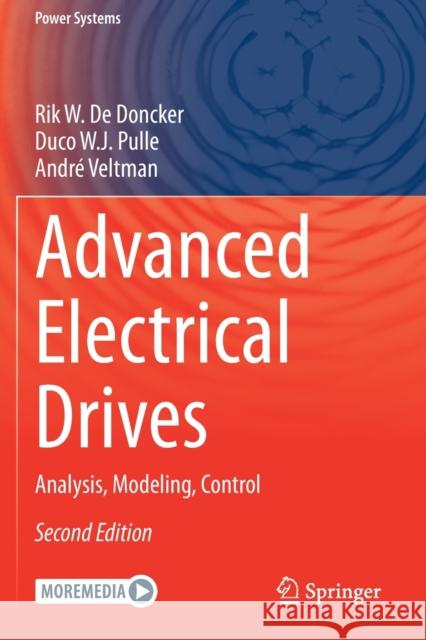Advanced Electrical Drives: Analysis, Modeling, Control » książka
topmenu
Advanced Electrical Drives: Analysis, Modeling, Control
ISBN-13: 9783030489793 / Angielski / Miękka / 2021 / 419 str.
Advanced Electrical Drives: Analysis, Modeling, Control
ISBN-13: 9783030489793 / Angielski / Miękka / 2021 / 419 str.
cena 281,76
(netto: 268,34 VAT: 5%)
Najniższa cena z 30 dni: 269,85
(netto: 268,34 VAT: 5%)
Najniższa cena z 30 dni: 269,85
Termin realizacji zamówienia:
ok. 16-18 dni roboczych.
ok. 16-18 dni roboczych.
Darmowa dostawa!
Kategorie:
Kategorie BISAC:
Wydawca:
Springer
Seria wydawnicza:
Język:
Angielski
ISBN-13:
9783030489793
Rok wydania:
2021
Wydanie:
2020
Numer serii:
000239383
Ilość stron:
419
Waga:
0.63 kg
Wymiary:
23.39 x 15.6 x 2.36
Oprawa:
Miękka
Wolumenów:
01
Dodatkowe informacje:
Wydanie ilustrowane











